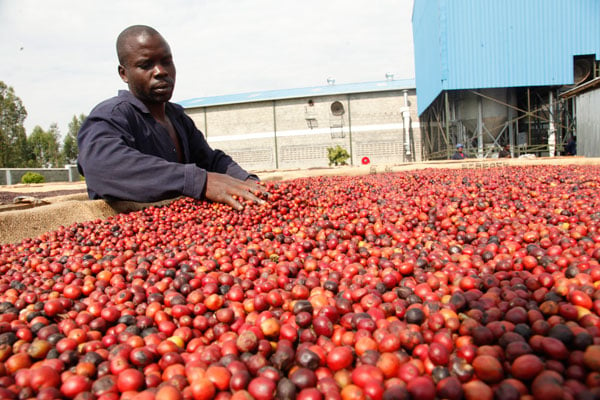Farmers get heads-up ahead of dry season

Farmers that deal in perennial crops such as coffee, bananas among others have been advised to mulch their plantations to keep the moisture that they got during the rainy season. PHOTO | FILE
What you need to know:
- For those that deal in perennial crops such as coffee, bananas among others, the minister advised the farmers to mulch their plantations to keep the moisture that they got during the rainy season.
Leaders and other stakeholders in the agriculture industry have tipped farmers on how to utilise the dry season to prepare their gardens and manage their livestock.
In an interview with the Monitor yesterday, the Minister of State for Agriculture, Mr Fred Kyakulaga Bwino, said farmers who grow annual crops such as maize, millet, soya beans, can now harvest and dry them.
For those that deal in perennial crops such as coffee, bananas among others, the minister advised the farmers to mulch their plantations to keep the moisture that they got during the rainy season.
“For cattle keepers and other livestock farmers, you have to preserve feeds for the animals. Some people make hay and silage to cater for the dry spell when there is not enough green pasture,” Mr Bwino said.
He added: “This is the time to start preparing the fields and gardens. It involves slashing, opening up land and all that.”
Mr Bwino explained that it is better to do this before the soil becomes hard and difficult to open up and towards the rainy season, prepare to plant.
The director general of the National Agricultural Research Organisation (Naro), Mr Ambrose Agona, said during the rainy season, there are plenty of pastures that farmers should store to feed their animals during the dry season.
“Given the rain that came around September to early December, farmers can stock hay and silage now for feeds during the dry season. If they have harvested hay they should be able to respond accordingly,” Mr Agona said.
He added that although the planting season begins around March 15, farmers should start planting early maturing and drought-tolerant crops.
Mr Kenneth Katungisa, the chief executive officer of the Uganda National Farmers Federation, urged livestock farmers to use the dry season to deworm animals and destock to ensure that their land is not over grazed.
“Most farmers have not been able to deworm their animals when it’s raining because when you give drugs to animals, they are supposed to stay away from drinking stagnant water for some time but you can’t do that when you have small ponds within your farms,” Mr Katungisa said.
He added: “They should also look at the farm and see whether the animals they have can survive with the pasture that is available.”
Mr Katungisa advised the farmers to look out for livestock diseases such as east coast fever, among others, during the dry season.
“The country has experienced a bit of late stoppage of rain. Usually rain stops at the beginning of December but for some reason, some parts of the southwestern and northern are still experiencing heavy rains. As a result, farmers who have beans have had issues because the traditional time for drying has not been possible,” Mr Katungisa said.
He added: “If the dry period is as predicted, it will be a good time for farmers to dry their produce and prepare it for the market.”
He, however, noted that the farmers can also use the dry season to purchase farm inputs and prepare their gardens for early planting in March.
In Uganda, the first two months of the year are known for dry weather. However, Lilian Nkwenge, the principal public relations officer of the Uganda National Meteorological Authority (UNMA), said this year’s weather forecast will be released soon.




